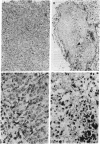Abstract
Monoclonal antibodies of the IgG2a isotype specifically inhibit the growth of human tumors in nude mice; tumors in mice given no antibody, an antibody of the IgG2a isotype that does bind to the tumor cells, or an antibody of the IgG2b isotype grow progressively. In the present work it is demonstrated that tumors of mice given the IgG2a antibody are essentially masses of necrosis, while tumors from the control mice are sheets of healthy tumor cells. Tumors of the treated mice, in comparison to controls, contain an increased number of macrophages, and these macrophages are activated for a distinct form of cytolysis dependent on antibodies of the IgG2a isotype. The data suggest that changes in the number and function of intratumoral macrophages are a major component of tumor destruction mediated by IgG2a antibodies.
Full text
PDF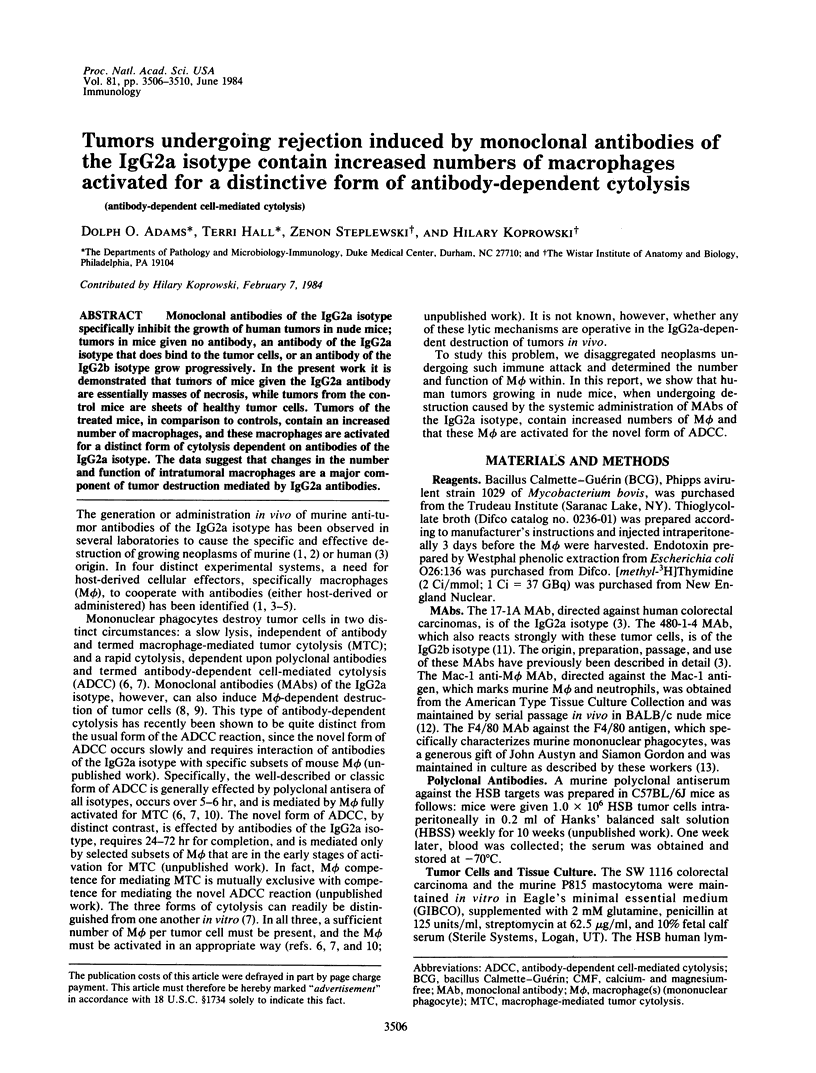
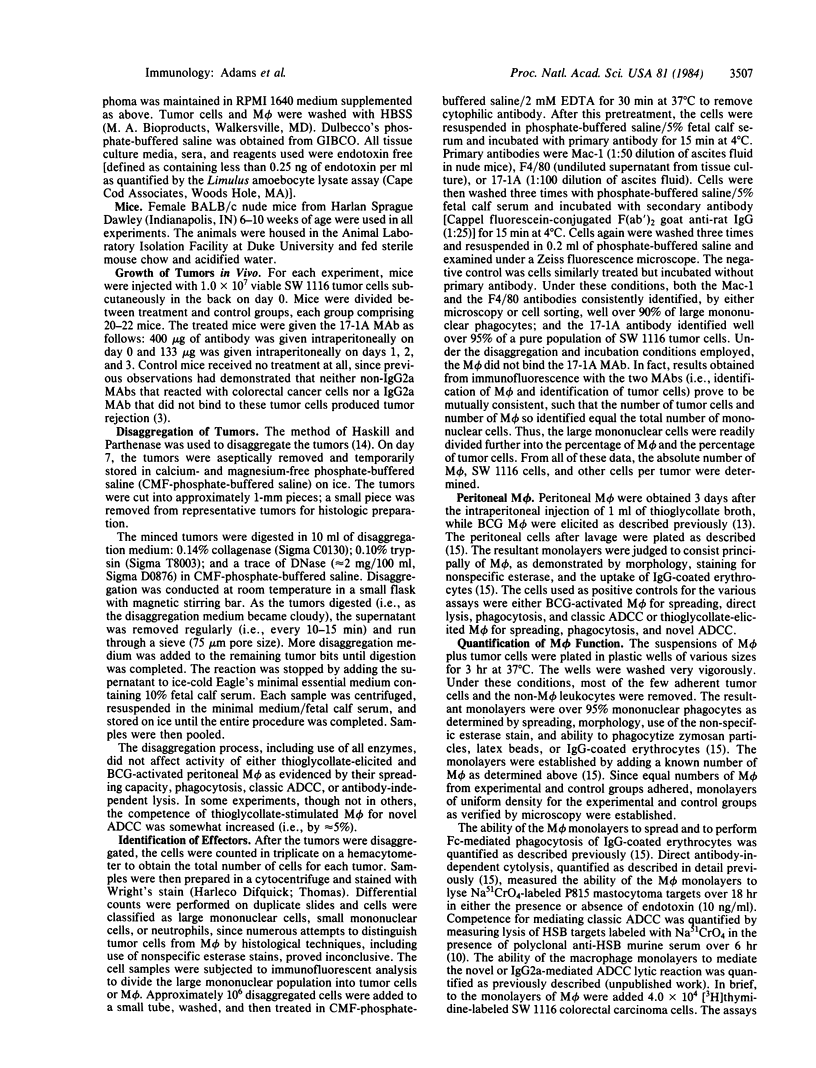
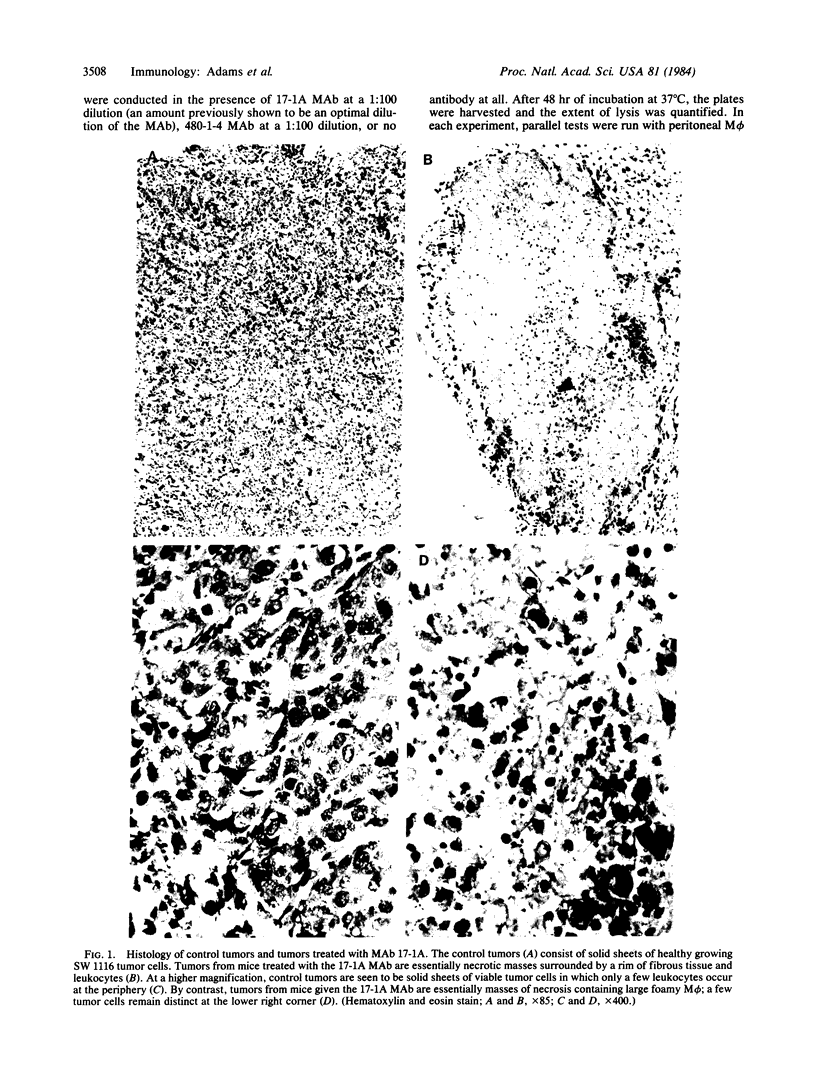
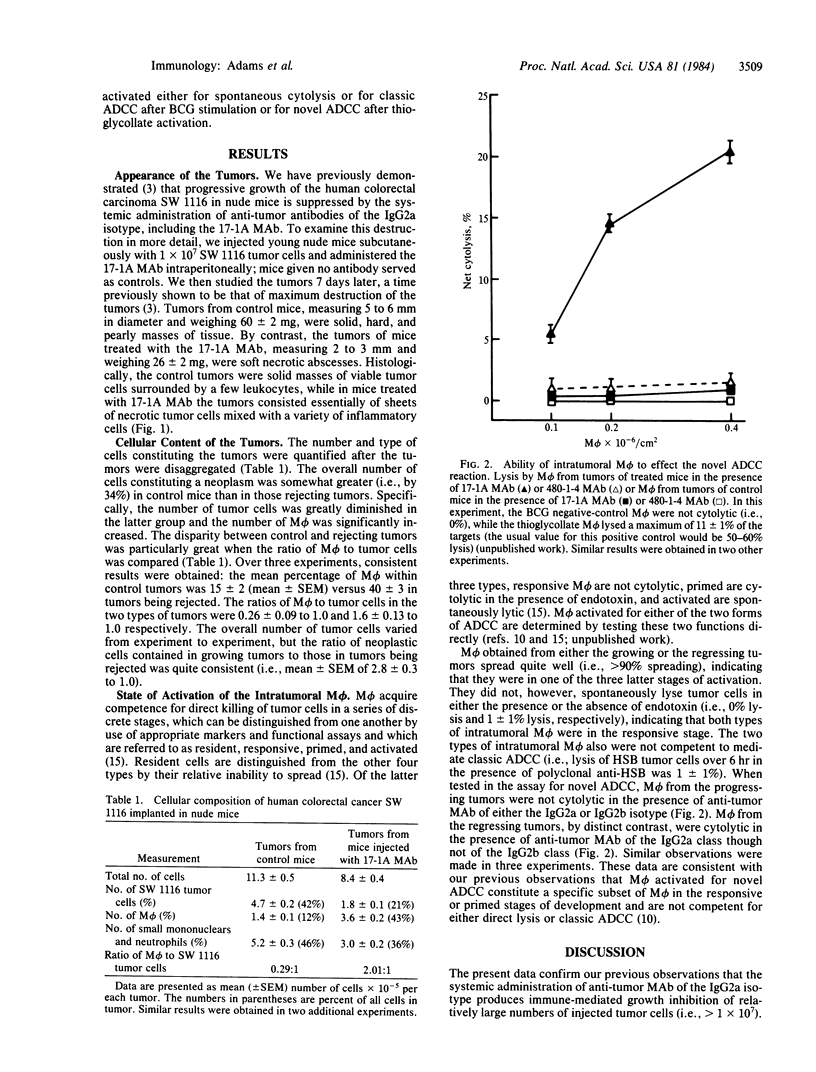
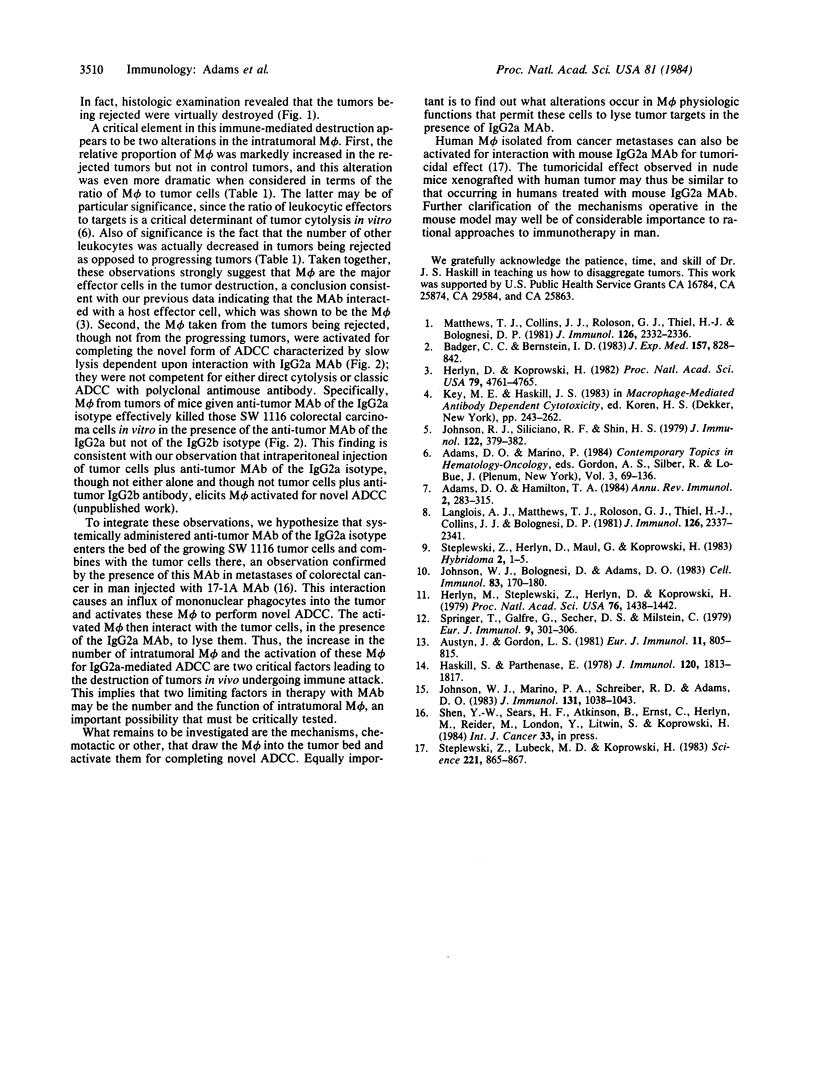
Images in this article
Selected References
These references are in PubMed. This may not be the complete list of references from this article.
- Adams D. O., Hamilton T. A. The cell biology of macrophage activation. Annu Rev Immunol. 1984;2:283–318. doi: 10.1146/annurev.iy.02.040184.001435. [DOI] [PubMed] [Google Scholar]
- Austyn J. M., Gordon S. F4/80, a monoclonal antibody directed specifically against the mouse macrophage. Eur J Immunol. 1981 Oct;11(10):805–815. doi: 10.1002/eji.1830111013. [DOI] [PubMed] [Google Scholar]
- Badger C. C., Bernstein I. D. Therapy of murine leukemia with monoclonal antibody against a normal differentiation antigen. J Exp Med. 1983 Mar 1;157(3):828–842. doi: 10.1084/jem.157.3.828. [DOI] [PMC free article] [PubMed] [Google Scholar]
- Haskill S., Parthenais E. Immunologic factors influencing the intra-tumor localization of ADCC effector cells. J Immunol. 1978 Jun;120(6):1813–1817. [PubMed] [Google Scholar]
- Herlyn D., Koprowski H. IgG2a monoclonal antibodies inhibit human tumor growth through interaction with effector cells. Proc Natl Acad Sci U S A. 1982 Aug;79(15):4761–4765. doi: 10.1073/pnas.79.15.4761. [DOI] [PMC free article] [PubMed] [Google Scholar]
- Herlyn M., Steplewski Z., Herlyn D., Koprowski H. Colorectal carcinoma-specific antigen: detection by means of monoclonal antibodies. Proc Natl Acad Sci U S A. 1979 Mar;76(3):1438–1442. doi: 10.1073/pnas.76.3.1438. [DOI] [PMC free article] [PubMed] [Google Scholar]
- Johnson R. J., Siliciano R. F., Shin H. S. Suppression of antibody-sensitized tumor cells by macrophages: insufficient supply or activation of macrophages within large tumors. J Immunol. 1979 Feb;122(2):379–382. [PubMed] [Google Scholar]
- Johnson W. J., Bolognesi D. P., Adams D. O. Antibody-dependent cytolysis (ADCC) of tumor cells by activated murine macrophages is a two-step process: quantification of target binding and subsequent target lysis. Cell Immunol. 1984 Jan;83(1):170–180. doi: 10.1016/0008-8749(84)90236-3. [DOI] [PubMed] [Google Scholar]
- Johnson W. J., Marino P. A., Schreiber R. D., Adams D. O. Sequential activation of murine mononuclear phagocytes for tumor cytolysis: differential expression of markers by macrophages in the several stages of development. J Immunol. 1983 Aug;131(2):1038–1043. [PubMed] [Google Scholar]
- Langlois A. J., Matthews T., Roloson G. J., Thiel H. J., Collins J. J., Bolognesi D. P. Immunologic control of the ascites form of murine adenocarcinoma 755. V. Antibody-directed macrophages mediate tumor cell destruction. J Immunol. 1981 Jun;126(6):2337–2341. [PubMed] [Google Scholar]
- Matthews T. J., Collins J. J., Roloson G. J., Thiel H. J., Bolognesi D. P. Immunologic control of the ascites form of murine adenocarcinoma 755. IV. Characterization of the protective antibody in hyperimmune serum. J Immunol. 1981 Jun;126(6):2332–2336. [PubMed] [Google Scholar]
- Springer T., Galfré G., Secher D. S., Milstein C. Mac-1: a macrophage differentiation antigen identified by monoclonal antibody. Eur J Immunol. 1979 Apr;9(4):301–306. doi: 10.1002/eji.1830090410. [DOI] [PubMed] [Google Scholar]
- Steplewski Z., Herlyn D., Maul G., Koprowski H. Hypothesis: macrophages as effector cells for human tumor destruction mediated by monoclonal antibody. Hybridoma. 1983;2(1):1–5. doi: 10.1089/hyb.1983.2.1. [DOI] [PubMed] [Google Scholar]
- Steplewski Z., Lubeck M. D., Koprowski H. Human macrophages armed with murine immunoglobulin G2a antibodies to tumors destroy human cancer cells. Science. 1983 Aug 26;221(4613):865–867. doi: 10.1126/science.6879183. [DOI] [PubMed] [Google Scholar]



